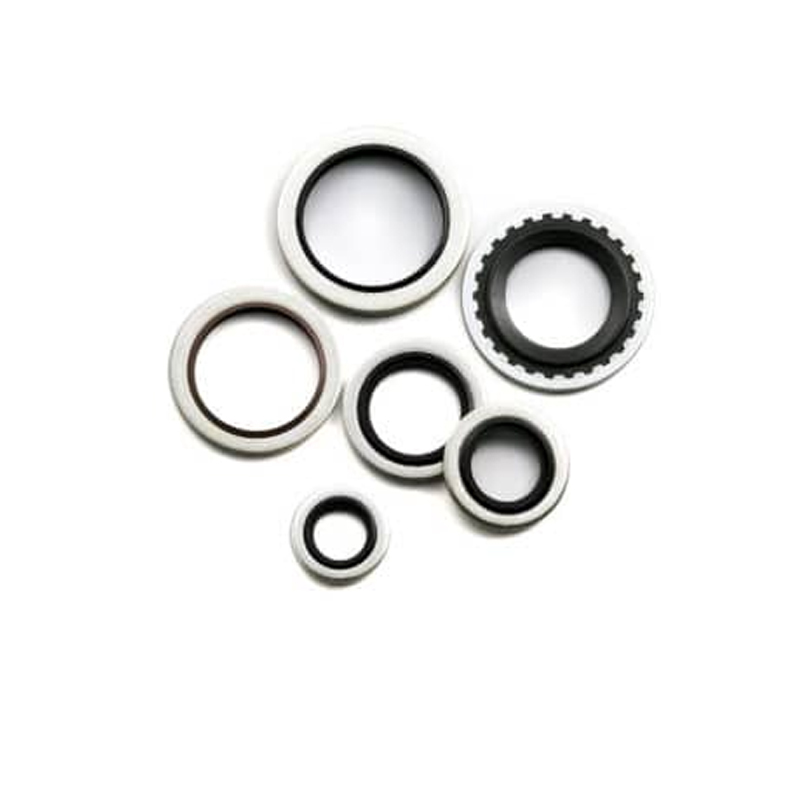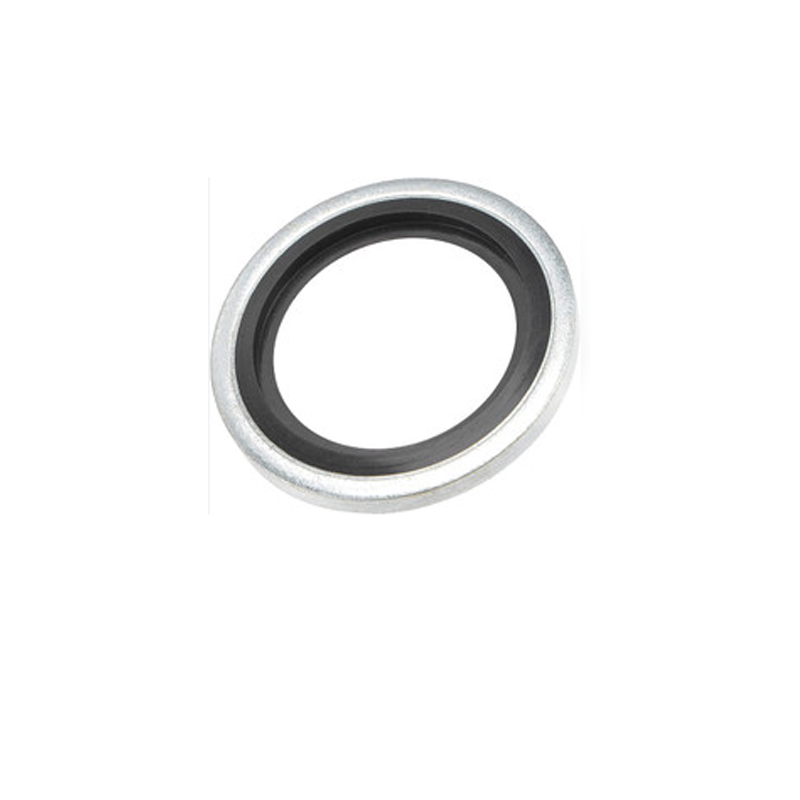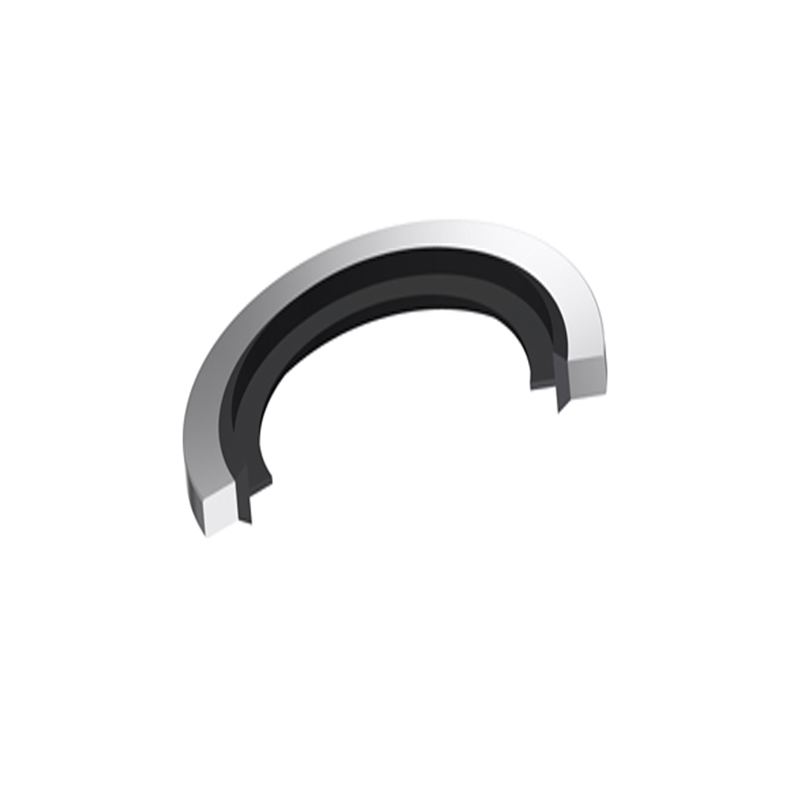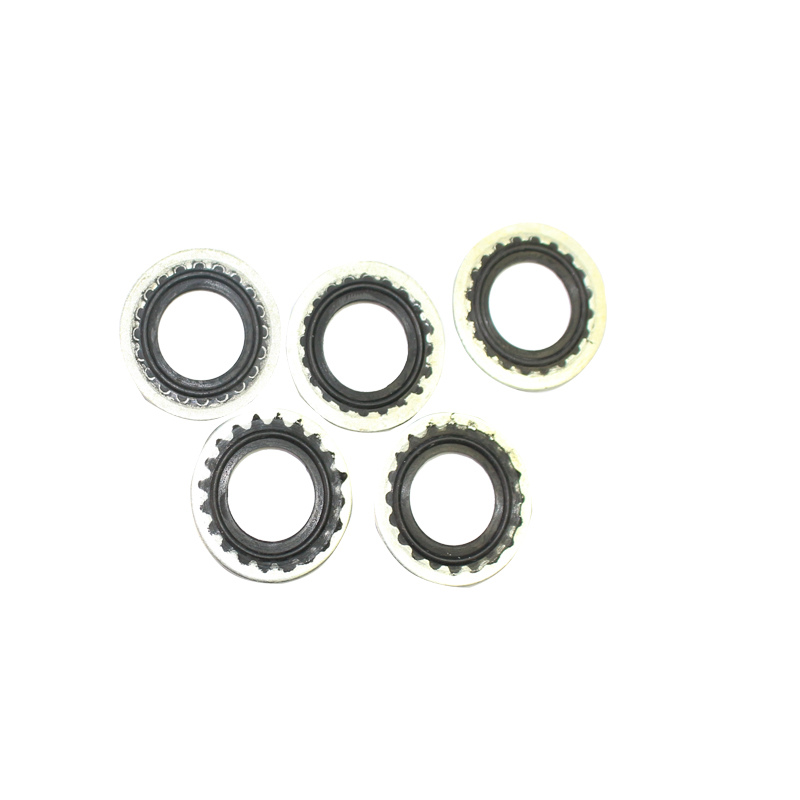Premium Bonded Seal Kits: High-Pressure, Leak-Free Performance
The Advanced Engineering of Bonded Seal Kits for Industrial Applications
In high-pressure and dynamic industrial environments, reliable sealing solutions are paramount for operational efficiency and safety. A critical component in achieving this reliability is the bonded seal kit, also widely known as Dowty Seals. These innovative seals combine the resilience of an elastomer (typically nitrile rubber or FKM) with the strength of a metal washer, creating a robust sealing mechanism capable of withstanding extreme conditions. Their unique design prevents extrusion, enhances pressure resistance, and simplifies installation, making them indispensable across a multitude of heavy-duty sectors.
The demand for superior sealing performance continues to grow, driven by increasingly stringent environmental regulations and the need for zero-leakage systems. This has propelled bonded seals to the forefront of sealing technology, offering a versatile and highly effective solution for hydraulic and pneumatic applications globally. Our exploration will delve into the intricacies of these seals, their manufacturing excellence, diverse applications, and the strategic advantages they provide.
Industry Trends and Market Dynamics
The global market for industrial seals, including the specialized segment of bonded seal kit solutions, is experiencing robust growth. Projections indicate a compound annual growth rate (CAGR) of approximately 4.5% from 2023 to 2030, driven primarily by increasing automation in manufacturing, expansion of the oil & gas sector, and continuous infrastructure development. Key trends influencing this market include:
- Miniaturization and High-Performance Demands: As machinery becomes more compact and operates under higher pressures and temperatures, seals must offer enhanced performance in smaller footprints. This pushes innovation in material science and design for solutions like the bonded piston seal.
- Sustainability and Material Innovation: There's a growing emphasis on developing eco-friendly materials and manufacturing processes. This includes longer-lasting seals that reduce waste and materials resistant to a wider range of chemicals, reducing the need for frequent replacements.
- Smart Seals and Predictive Maintenance: While still nascent, the concept of "smart seals" with embedded sensors for monitoring temperature, pressure, and wear is gaining traction, enabling predictive maintenance and preventing catastrophic failures.
- Global Supply Chain Resilience: Geopolitical shifts and past disruptions have highlighted the need for diversified and resilient supply chains for critical components, encouraging localized manufacturing and stronger vendor partnerships.
These trends underscore the importance of precision-engineered sealing solutions that can adapt to evolving industrial landscapes, ensuring operational continuity and efficiency. The versatility and reliability of a metal bonded seal make it a preferred choice for engineers seeking high-integrity sealing.

Detailed Manufacturing Process Flow of Bonded Seal Kits
The production of a high-performance bonded seal kit involves a precise sequence of steps, integrating advanced material science with sophisticated engineering. Adherence to international standards like ISO 9001 and specific material standards (e.g., ASTM D2000 for rubber materials) is critical throughout the process to ensure product consistency and reliability.
1. Material Selection & Preparation:
- Elastomer: Selection of high-grade compounds such as Nitrile Butadiene Rubber (NBR) for general hydraulic applications, Hydrogenated Nitrile Butadiene Rubber (HNBR) for higher temperatures and abrasion resistance, or Fluoroelastomer (FKM/Viton®) for extreme chemical and thermal resistance. These are mixed to specific formulations, including vulcanizing agents and fillers.
- Metal Washer: Typically carbon steel (often phosphated or zinc-plated for corrosion resistance), stainless steel (for aggressive media), or aluminum. The metal is precisely stamped or CNC machined to tight tolerances, ensuring flatness and concentricity.
2. Surface Treatment of Metal Washer:
The metal washer undergoes rigorous cleaning and degreasing. A chemical bonding agent (primer/adhesive) is then applied to the surface where the elastomer will adhere. This step is crucial for achieving a strong, durable bond, preventing delamination under pressure.
3. Compression Molding & Vulcanization:
The pre-formed elastomer compound and the treated metal washer are placed into a heated mold. Under immense pressure and heat, the elastomer flows around the metal washer and undergoes vulcanization – a chemical process that transforms the rubber into a durable, elastic material. This simultaneous bonding creates the inseparable bonded seal ring structure. The precise temperature and dwell time are critical for optimal material properties and bond strength.
4. Trimming & Finishing:
After molding, excess flash (overflowing material) is carefully trimmed from the seal. This is often done by cryo-deburring or precision cutting, ensuring clean edges and dimensions.
5. Quality Control & Testing:
- Dimensional Inspection: Using advanced optical and tactile measurement systems to verify critical dimensions against specifications (e.g., inner diameter, outer diameter, thickness).
- Material Property Testing: Hardness (Shore A), tensile strength, elongation, and compression set tests are performed on rubber samples to confirm material integrity according to standards like ASTM D2240.
- Bond Strength Testing: Destructive peel tests or shear tests are conducted on samples to ensure the elastomer-to-metal bond meets specified strength requirements.
- Pressure Testing: Random samples are subjected to hydrostatic pressure tests to evaluate sealing capability under operational conditions.
- Visual Inspection: Each seal is visually inspected for defects, surface finish, and overall quality.
6. Packaging & Delivery:
Finished seals are carefully packaged to prevent damage and contamination during transit, often with protective coatings or desiccant packs.
Target industries benefiting from this meticulous manufacturing include petrochemical, metallurgy, heavy machinery, automotive, aerospace, and water supply & drainage. The advantages in typical application scenarios include superior corrosion resistance due to the choice of metal and plating, and extended service life, contributing to energy saving by preventing fluid loss and maintaining system integrity. A well-manufactured bonded seal kit significantly reduces downtime and maintenance costs.

Technical Specifications and Performance Parameters
Understanding the technical specifications of a bonded seal kit is crucial for proper selection and optimal performance. These parameters dictate the seal's suitability for specific operating conditions, ensuring longevity and preventing failure.
Key Technical Parameters:
- Material Composition: Specifies the elastomer (e.g., NBR, FKM, EPDM) and the metal (e.g., carbon steel, stainless steel). This dictates chemical compatibility, temperature range, and pressure resistance.
- Operating Temperature Range: Defines the minimum and maximum temperatures at which the seal maintains its elasticity and sealing integrity. For NBR, typically -30°C to +100°C; for FKM, -20°C to +200°C.
- Pressure Rating: The maximum hydrostatic pressure the seal can effectively contain without extrusion or leakage. Standard bonded seals can often withstand pressures up to 400 bar (5800 psi), with specialized designs reaching higher.
- Hardness (Shore A): Measures the elastomer's resistance to indentation, typically ranging from 70 to 90 Shore A for bonded seals. Higher hardness generally correlates with greater extrusion resistance.
- Dimensions: Inner diameter (ID), outer diameter (OD), and thickness are critical for proper fitment. Standard sizes conform to international norms like ISO 1179 or AS568.
- Compression Set: The permanent deformation of an elastomer after prolonged compression. A lower compression set value indicates better long-term sealing performance.
- Coefficient of Thermal Expansion: How much a material expands or contracts with temperature changes. Differences between the elastomer and metal must be accounted for in design to prevent thermal stress.
Typical Product Specification Table (Example for a Standard NBR/Steel Bonded Seal):
| Parameter | Specification (NBR 70 / Carbon Steel) | ISO/ASTM Standard Reference |
|---|---|---|
| Elastomer Material | Nitrile Butadiene Rubber (NBR) | ASTM D2000 M2BG714 |
| Metal Washer Material | Carbon Steel (Zinc Plated) | ISO 4042 (Zinc Plating) |
| Hardness (Elastomer) | 70 ± 5 Shore A | ASTM D2240 |
| Operating Temperature Range | -30°C to +100°C (-22°F to +212°F) | ISO 3601-3 (Performance) |
| Max. Operating Pressure | Up to 400 bar (5800 psi) | Internal Testing/ISO 6149-2 |
| Compression Set (22h @ 100°C) | < 20% | ASTM D395 Method B |
| Tensile Strength (Elastomer) | > 12 MPa | ASTM D412 |
These detailed specifications ensure that engineers can select the correct bonded seal kit for their specific application, guaranteeing optimal sealing integrity and longevity under defined operational stresses.

Application Scenarios and Target Industries
The robust design and superior sealing performance of bonded seal kit solutions make them ideal for a wide array of demanding industrial applications where traditional O-rings or gaskets might fail due to extrusion or high pressures.
Typical Application Scenarios:
- Hydraulic Systems: Essential for sealing pipe connections, ports, and various components in hydraulic cylinders, pumps, and valves. Their anti-extrusion properties are critical in high-pressure hydraulic lines.
- Pneumatic Equipment: Used in air compressors, pneumatic actuators, and control valves where reliable, leak-free sealing is necessary for efficient operation.
- Fuel and Oil Systems: In automotive, aerospace, and heavy machinery, these seals prevent leaks in fuel lines, engine oil sumps, and transmission systems, often utilizing FKM for chemical resistance.
- Off-Highway and Construction Equipment: Excavators, loaders, bulldozers, and agricultural machinery rely on bonded seals for their durability in harsh, dirty, and high-vibration environments.
- Process Industries (Petrochemical, Chemical, Food & Beverage): Special material compounds (e.g., EPDM for steam, FKM for aggressive chemicals) are used to seal flanged connections, pipelines, and processing equipment. Their resistance to corrosion is a significant advantage.
- Water Supply & Drainage Systems: Providing durable seals in pumps, valves, and pipe fittings, resisting water pressure and environmental factors.
- Automotive Industry: From brake systems to power steering units, and general engine sealing, bonded seals offer reliable performance under varying temperatures and pressures.
Key Target Industries:
- Heavy Machinery & Construction: Ensuring the integrity of hydraulic circuits in excavators, cranes, and bulldozers.
- Oil & Gas Exploration: Sealing high-pressure lines and valves in drilling equipment, subsea applications, and refinery operations where chemical resistance is crucial.
- Automotive & Transportation: Critical for braking systems, power steering, and fuel injection systems.
- Aerospace & Defense: Where lightweight yet high-performance sealing is required for aircraft hydraulic systems.
- Renewable Energy (Wind Turbines): Sealing hydraulic pitch control systems that operate under variable loads and harsh outdoor conditions.
- Manufacturing & Automation: Integral to pneumatic and hydraulic systems in robotic arms, presses, and assembly lines.
In these applications, the robustness of a metal bonded seal directly translates to extended service life, reduced fluid leakage, and enhanced operational safety.

Technical Advantages and Performance Benefits
The inherent design of a bonded seal kit offers several distinct technical advantages over traditional sealing methods, contributing to improved system performance and reduced operational costs.
- Exceptional Pressure Resistance: Unlike O-rings which can extrude into the clearance gap at high pressures, the metal washer of a bonded seal provides robust anti-extrusion support. This allows them to effectively seal at pressures far exceeding those possible with unbacked elastomer seals, typically up to 400 bar and even higher with specific designs.
- Elimination of Extrusion: The rigid metal outer ring securely constrains the elastomeric sealing element, preventing it from being squeezed out of the gland under high-pressure differentials. This is a critical advantage in dynamic hydraulic systems.
- Simplified Installation: Bonded seals are inherently captive, meaning the elastomer is securely bonded to the metal. This makes installation straightforward, reducing the risk of improper assembly, twisting, or pinching that can occur with loose O-rings.
- Reduced Bolt Torque Requirements: Due to their efficient sealing action, bonded seals often require less bolt torque to achieve a reliable seal compared to conventional fiber or metallic gaskets. This can simplify assembly and prevent damage to components.
- Versatile Material Combinations: The ability to combine various elastomer compounds (NBR, FKM, EPDM, Silicone, HNBR) with different metals (carbon steel, stainless steel, aluminum) allows for customization to specific temperature ranges, chemical compatibilities, and environmental conditions.
- Reliable Reusability: In many applications, especially where maintenance requires frequent disassembly, bonded seals can often be reused multiple times without compromising sealing integrity, contributing to cost savings and reduced waste.
- Excellent Corrosion Resistance: The metal washer can be plated with zinc, phosphate, or constructed from stainless steel, providing superior resistance to rust and chemical attack, extending the seal's life in aggressive environments.
- Wide Temperature Range Capability: Depending on the elastomer, bonded seals can operate effectively across a broad spectrum of temperatures, from cryogenic conditions to extreme heat.
These technical advantages translate directly into tangible performance benefits for end-users, including enhanced system reliability, reduced leakage, lower maintenance costs, and prolonged equipment lifespan.

Vendor Comparison and Customized Solutions
Selecting the right supplier for a bonded seal kit is critical for ensuring product quality, consistent supply, and access to specialized technical support. While specific vendor names are beyond the scope, a robust comparison should focus on several key aspects.
Key Criteria for Vendor Comparison:
- Certifications: Look for ISO 9001, IATF 16949 (for automotive), or AS9100 (for aerospace) to ensure adherence to quality management systems.
- Material Expertise: A strong vendor will have deep knowledge of elastomer and metal properties, offering guidance on the best material combinations for specific chemical compatibilities and temperature ranges.
- Manufacturing Capabilities: Assess their ability to produce seals using various processes (e.g., compression molding, injection molding) and their quality control infrastructure.
- Customization Options: The ability to design and produce custom sizes, shapes, and material combinations is often crucial for unique industrial applications.
- Technical Support: Responsive engineering support for design consultation, failure analysis, and material recommendations.
- Lead Times & Logistics: Consistent lead times and efficient global logistics capabilities are essential for managing supply chains.
- Reputation & Client Base: A track record of serving reputable clients in demanding industries speaks volumes about a vendor's reliability and product quality.
Customized Solutions for Unique Challenges:
Standard bonded seals cover a wide range of applications, but many B2B clients face highly specialized sealing challenges. Customization becomes a powerful tool in these scenarios:
- Non-Standard Dimensions: Designing seals for unique port geometries, oversized or undersized applications, or specific flange designs.
- Extreme Environmental Resilience: Developing seals with specialized elastomers (e.g., FFKM for ultimate chemical resistance, Silicone for very low/high temperatures) or exotic metal alloys for highly corrosive or high-radiation environments.
- Integrated Solutions: Sometimes, a bonded seal is part of a larger assembly. Custom designs can integrate multiple sealing functions or unique mounting features.
- Compliance with Specific Industry Standards: Meeting unique requirements for industries such as food processing (FDA compliance), medical (USP Class VI), or specific automotive OEM standards.
- Color Coding and Identification: For complex systems, custom colors or markings can aid in identification and maintenance, preventing errors during assembly.
A partner capable of offering comprehensive customized solutions, from initial CAD design to prototyping and final production, ensures that even the most niche application receives an optimal sealing solution, leveraging the full potential of a bonded piston seal.

Application Case Studies: Proving Reliability in Practice
Case Study 1: High-Pressure Hydraulic Manifold in Heavy Construction Equipment
A leading manufacturer of heavy excavators faced persistent leakage issues in the high-pressure hydraulic manifold of their new generation machines. The manifold operated at peak pressures of 350 bar (5075 psi) and experienced significant vibration. Traditional O-rings suffered from extrusion and rapid degradation, leading to frequent field repairs and costly downtime.
Solution: Engineers implemented a custom bonded seal kit with an HNBR elastomer bonded to a phosphated carbon steel washer. The HNBR provided superior abrasion resistance and a wider temperature range (-40°C to +150°C), while the metal washer effectively prevented extrusion.
Result: Leakage was virtually eliminated. Field service data over 24 months showed a 95% reduction in seal-related warranty claims and a significant increase in machine uptime, demonstrating the long-term reliability and cost-effectiveness of the bonded seal solution.
Case Study 2: Chemical Processing Plant - Acid Transfer Lines
A chemical plant handling concentrated sulfuric acid required robust seals for its transfer lines operating at moderate pressures but highly corrosive conditions. Standard NBR seals rapidly deteriorated, leading to dangerous leaks and system contamination.
Solution: A specialized bonded seal ring was designed using a high-performance FKM (Fluoroelastomer) compound for the sealing element, bonded to a 316L stainless steel washer. This combination offered excellent chemical compatibility with sulfuric acid and superior corrosion resistance for the metal component.
Result: The new seals demonstrated exceptional resistance to the corrosive media, extending the maintenance cycle from quarterly to annually. This drastically improved worker safety, reduced environmental risks, and lowered operational expenses associated with frequent seal replacement and material loss.
Authoritativeness and Trustworthiness: Our Commitment
Building and maintaining trust with our B2B partners is at the core of our operations. Our commitment to quality, transparency, and customer satisfaction underpins every aspect of our service.
Certifications and Quality Assurance:
- ISO 9001:2015 Certified: Our quality management system adheres to the highest international standards, ensuring consistent product quality from design to delivery.
- Compliance with Industry Standards: All products, including our bonded seal kit offerings, meet or exceed relevant international standards such as ASTM D2000 for rubber materials and ISO 1179 for port connections.
- Extensive Testing Data: We conduct rigorous in-house testing, including material property analysis, pressure cycle tests, and environmental chamber testing, with detailed reports available upon request to validate performance.
- Long-Standing Industry Presence: With over two decades of experience in the sealing industry, we have developed deep expertise and a reputation for reliability among a diverse client base, from energy to manufacturing sectors.
Frequently Asked Questions (FAQ):
- Q: What is the typical lead time for custom bonded seals?
A: Standard sizes are typically in stock or have a lead time of 1-2 weeks. Custom orders usually require 4-6 weeks for design, prototyping, and production, depending on complexity and material availability. Expedited options are available. - Q: What is your warranty policy for bonded seals?
A: We offer a standard 12-month warranty against manufacturing defects and material failures under normal operating conditions. Extended warranties are available for specific projects, subject to agreement. - Q: Can bonded seals be reused?
A: Yes, under certain conditions. For non-critical, lower-pressure applications, and if the seal shows no visible signs of damage, deformation, or compression set, they can often be reused. However, for critical or high-pressure applications, replacement is recommended to ensure optimal safety and performance. - Q: How do I select the correct material for my application?
A: Our technical sales team and engineers are available for consultation. We'll assess your operating parameters, including temperature, pressure, fluid type, and environmental factors, to recommend the optimal elastomer and metal combination.
Order Fulfillment and Support:
- Lead Time Transparency: We provide clear and realistic lead times for all orders, with real-time updates on production and shipping status.
- Robust Logistics: Partnering with reliable global logistics providers to ensure timely and secure delivery of products to your facility, anywhere in the world.
- Dedicated Customer Support: Our team is available via phone, email, and online portal to address any inquiries, technical support needs, or order-related concerns promptly and professionally.
- After-Sales Service: We provide ongoing support, including failure analysis, maintenance recommendations, and continuous product improvement based on field feedback.

Conclusion
The bonded seal kit represents a pinnacle in sealing technology, offering a robust, reliable, and versatile solution for the most demanding industrial applications. Its unique composite construction, combining the resilience of an elastomer with the strength of metal, effectively addresses challenges of high pressure, chemical aggression, and temperature extremes. As industries continue to push boundaries, the demand for such high-performance sealing solutions will only grow, underscoring the critical role of these expertly engineered components in ensuring operational integrity and efficiency across the globe.
References:
- ISO. (2015). ISO 9001:2015 - Quality management systems – Requirements. International Organization for Standardization.
- ASTM International. (2020). ASTM D2000 - Standard Classification System for Rubber Products in Automotive Applications. American Society for Testing and Materials.
- Parker Hannifin Corporation. (2019). O-Ring Handbook ORD 5700.
- European Sealing Association. (2022). Fluid Sealing Technology Guide.
- Freudenberg Sealing Technologies. (2021). Sealing Manual.
-
Seal 12x20x5: Precision Radial Shaft Seals for Industrial Reliability
News Nov.24,2025
-
Seal 12x18x5: Essential Guide to Specifications, Applications & Vendors
News Nov.24,2025
-
Understanding Seal 12 20 5: Applications, Specifications & Industry Insights
News Nov.23,2025
-
Durable Oil Seal 85x110x12 – Reliable Sealing Solutions for Industry
News Nov.23,2025
-
Durable and Precise Oil Seal 75x95x10 for Efficient Machinery | YJM Seal
News Nov.22,2025
-
Durable Oil Seal 75x100x10 for Reliable Industrial Performance | YJM Seal
News Nov.22,2025
-
High-Quality Oil Seal 65x90x10 | Durable & Reliable Sealing Solutions
News Nov.22,2025
Products categories















